Herbal extracts have gained significant attention in the cosmetics industry due to their natural and beneficial properties. As consumers increasingly seek out clean and botanical-based beauty products, the demand for cosmetics infused with herbal extracts has surged. These extracts offer a wide range of benefits, from nourishing and rejuvenating the skin to promoting healthy hair and scalp. In this article, we will explore the growing trend of herbal extracts in cosmetics, highlighting their advantages and diverse applications.
Definition of herbal extract
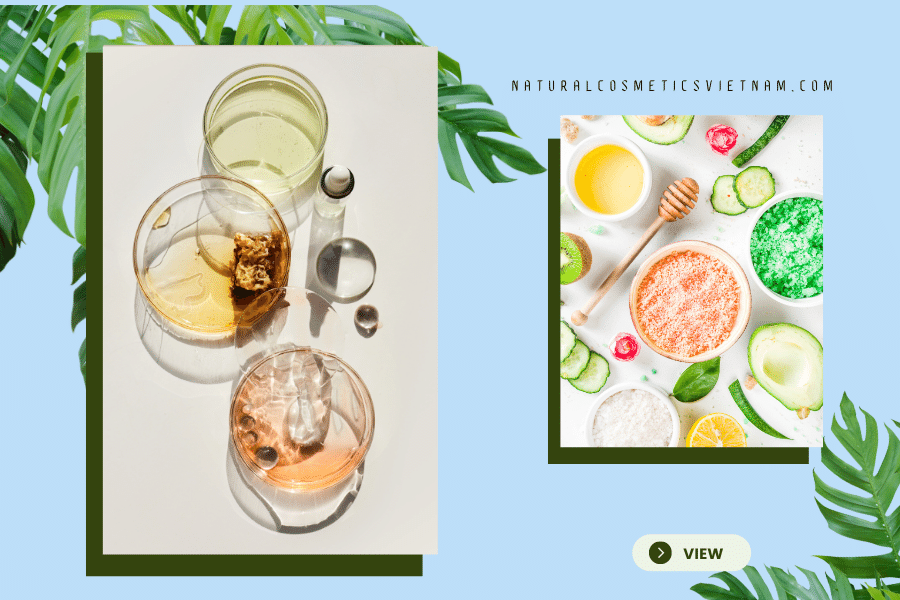
The Growing Trend of Herbal Extracts in Cosmetics
A herbal extract is a concentrated form of a plant or botanical material that has been obtained through a process of extraction. It involves using a suitable solvent or method to isolate the active compounds or constituents present in the plant. The resulting extract contains a higher concentration of specific beneficial components found in the original plant, such as phytochemicals, essential oils, flavonoids, or other bioactive compounds.
Herbal extracts are used for various purposes, including medicinal, cosmetic, and culinary applications. They are valued for their therapeutic properties and the ability to deliver the concentrated benefits of the plant in a more convenient and potent form. Herbal extracts can be obtained from different parts of the plant, including leaves, flowers, stems, roots, or seeds, depending on the desired properties and compounds to be extracted.
The extraction process may involve methods such as solvent extraction, steam distillation, cold pressing, or supercritical fluid extraction. Each method is selected based on the type of plant material and the specific constituents to be extracted.
Herbal extracts have a long history of use in traditional medicine systems and are now commonly incorporated into various products, including herbal remedies, dietary supplements, skincare products, and natural cosmetics. They are valued for their potential health benefits, including anti-inflammatory, antioxidant, antimicrobial, and other therapeutic properties.
Overall, herbal extracts provide a concentrated and convenient way to harness the medicinal and beneficial properties of plants, making them a valuable resource in promoting health and well-being.
Extraction methods for herbal extracts
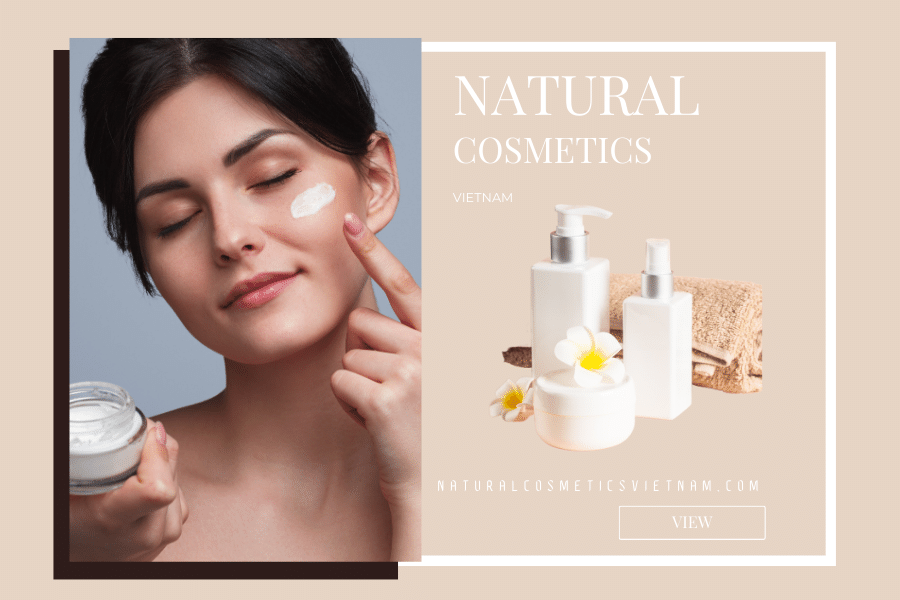
The Growing Trend of Herbal Extracts in Cosmetics
There are several methods commonly used for extracting herbal extracts. The choice of extraction method depends on various factors such as the type of plant material, the desired constituents to be extracted, and the intended use of the extract. Here are some of the common extraction methods for herbal extracts:
- Solvent Extraction: This method involves using a solvent, such as ethanol, methanol, or water, to dissolve and extract the desired compounds from the plant material. The plant material is soaked or macerated in the solvent, allowing the active constituents to be transferred into the liquid. The solvent is then evaporated, leaving behind the concentrated extract.
- Steam Distillation: Steam distillation is often used for extracting essential oils from aromatic plants. The plant material is placed in a still, and steam is passed through it. The steam carries the volatile compounds from the plant material, and the mixture of steam and volatile oil is condensed and collected. The essential oil separates from the condensed water and can be collected.
- Cold Pressing: Cold pressing is commonly used to extract oils from seeds or fruits. The plant material is mechanically pressed without the use of heat or solvents. This method is particularly suitable for obtaining oils with high fatty acid content, such as olive oil or coconut oil.
- Supercritical Fluid Extraction: Supercritical fluid extraction utilizes a supercritical fluid, typically carbon dioxide (CO2), as the solvent. Under specific temperature and pressure conditions, CO2 behaves as both a liquid and a gas, allowing it to extract a wide range of compounds. Supercritical fluid extraction is often used to extract delicate or heat-sensitive compounds from plants.
- Maceration: Maceration involves soaking the plant material in a solvent or oil for an extended period to allow the active constituents to dissolve. This method is commonly used for extracting compounds from herbs or flowers. The solvent is then separated from the plant material, leaving behind the extracted compounds.
- Decoction: Decoction is a method used for extracting constituents from hard or woody plant materials, such as roots, barks, or seeds. The plant material is boiled in water, and the liquid is simmered for a specific period to extract the desired compounds. The resulting decoction is then strained and used as an herbal extract.
Popular Herbal Extracts Used in Cosmetics
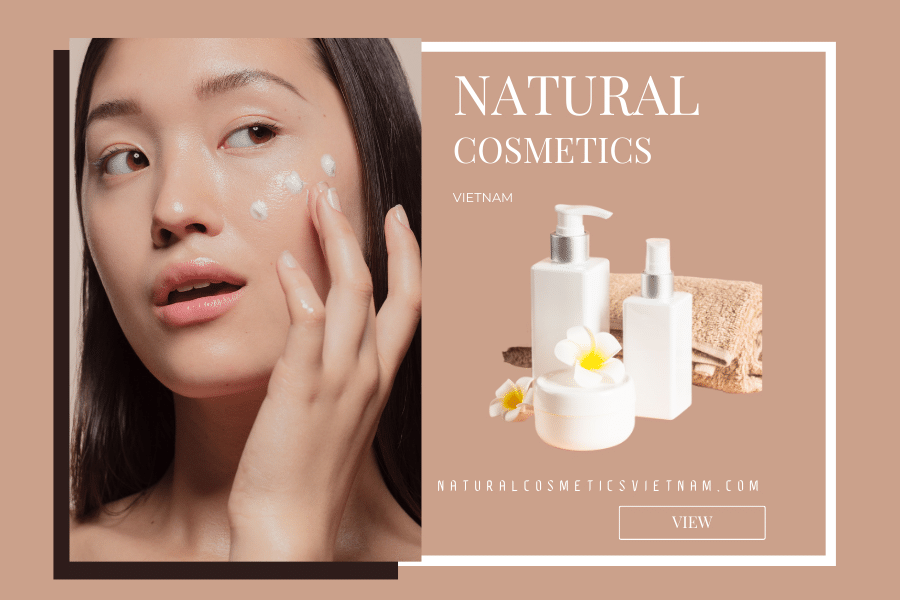
The Growing Trend of Herbal Extracts in Cosmetics
Herbal extracts have gained popularity in the cosmetics industry due to their natural and beneficial properties. They are used in various skincare and haircare products for their ability to nourish, rejuvenate, and enhance the overall health of the skin and hair. Here are some popular herbal extracts commonly used in cosmetics:
Aloe vera extract
Aloe vera extract is derived from the succulent leaves of the Aloe vera plant, a species that has been used for centuries for its medicinal and skincare properties. It is one of the most popular and widely used herbal extracts in cosmetics and skincare products. Aloe vera extract offers numerous benefits for the skin, making it a versatile ingredient in various cosmetic formulations.
- Moisturizing and Hydrating: Aloe vera extract is highly moisturizing and helps to hydrate the skin. It contains polysaccharides that form a protective layer on the skin, preventing moisture loss and keeping the skin well-hydrated.
- Soothing and Calming: Aloe vera has soothing and anti-inflammatory properties, making it ideal for sensitive, irritated, or sunburned skin. It helps to reduce redness, inflammation, and discomfort, providing relief and promoting skin healing.
- Healing and Wound Repair: Aloe vera extract contains bioactive compounds, such as vitamins, minerals, and enzymes, that contribute to its wound healing properties. It helps to accelerate the healing process of cuts, burns, and minor skin irritations.
- Anti-Aging: Aloe vera extract has antioxidant properties that help to neutralize free radicals, which can contribute to premature aging and skin damage. It promotes the production of collagen and elastin, enhancing the skin’s elasticity and reducing the appearance of wrinkles and fine lines.
- Anti-acne: Aloe vera extract possesses antimicrobial properties that help to combat acne-causing bacteria. It also helps to soothe and reduce inflammation associated with acne breakouts, promoting a clearer complexion.
- Skin Brightening: Aloe vera extract contains enzymes that help to gently exfoliate the skin, removing dead skin cells and promoting a brighter, more radiant complexion.
Green Tea Extract
Green tea extract is another popular herbal extract used in cosmetics for its numerous potential benefits for the skin. Here are some key features and advantages of green tea extract in skincare products:
- Antioxidant Protection: Green tea is rich in polyphenols, particularly catechins, which act as potent antioxidants. These antioxidants help protect the skin from free radicals, which are unstable molecules that can cause oxidative damage, premature aging, and skin disorders.
- Anti-Inflammatory Properties: Green tea extract contains anti-inflammatory compounds that can help soothe and calm the skin. It may help reduce redness, inflammation, and irritation associated with conditions like acne, eczema, and rosacea.
- Sun Protection: Green tea extract has been shown to possess photoprotective properties, helping to shield the skin from UV-induced damage caused by sun exposure. While it is not a substitute for sunscreen, incorporating green tea extract into skincare products can provide additional protection against the harmful effects of the sun.
- Sebum Regulation: Green tea extract has been found to help regulate sebum production, making it beneficial for individuals with oily or acne-prone skin. By controlling excess oiliness, it may help minimize breakouts and promote a clearer complexion.
- Skin Brightening: Green tea extract contains compounds that can help brighten and even out the skin tone. It may assist in reducing the appearance of hyperpigmentation, dark spots, and discoloration, giving the skin a more radiant and youthful appearance.
- Anti-Aging Effects: The antioxidants present in green tea extract can also help combat signs of aging by neutralizing free radicals and reducing oxidative stress on the skin. This may help minimize the appearance of fine lines, wrinkles, and age spots, promoting a more youthful complexion.
Chamomile Extract
Chamomile extract is widely used in cosmetics and skincare products for its soothing and calming properties. Derived from the flowers of the chamomile plant, it offers several benefits for the skin. Here are some key features and advantages of chamomile extract in cosmetics:
- Anti-Inflammatory and Calming: Chamomile extract is known for its anti-inflammatory properties, making it beneficial for sensitive and irritated skin. It can help reduce redness, inflammation, and skin irritation caused by conditions like acne, eczema, or rosacea.
- Skin Soothing and Healing: Chamomile extract has a soothing effect on the skin, providing relief from itching, dryness, and discomfort. It promotes skin healing and helps to alleviate skin conditions such as dermatitis or sunburns.
- Antioxidant Protection: Chamomile contains antioxidants that help protect the skin from oxidative stress caused by free radicals. This can aid in preventing premature aging and maintaining a youthful appearance.
- Skin Brightening: Chamomile extract may help to brighten the skin and even out the complexion. It can assist in reducing the appearance of dark spots, hyperpigmentation, and uneven skin tone.
- Anti-Microbial Properties: Chamomile extract has mild antimicrobial properties, which can help combat bacteria and other microorganisms on the skin. This makes it beneficial for individuals prone to acne and other skin infections.
- Gentle Cleansing: Chamomile extract is often used in facial cleansers and gentle cleansers due to its soothing and non-irritating nature. It helps remove impurities without stripping the skin of its natural moisture.
Lavender Extract
Lavender extract is a popular herbal extract used in cosmetics and skincare products due to its pleasant fragrance and various potential benefits for the skin. Here are some key features and advantages of lavender extract in cosmetics:
- Calming and Relaxing: Lavender has a well-known reputation for its calming and relaxing properties. Its aroma can help reduce stress and promote a sense of well-being, making it a popular ingredient in aromatherapy and skincare products aimed at providing a soothing experience.
- Anti-Inflammatory and Antiseptic: Lavender extract possesses anti-inflammatory properties that can help soothe and reduce skin redness and irritation. It also has antiseptic properties, which may aid in cleansing the skin and preventing infection.
- Skin Healing and Regeneration: Lavender extract has been found to promote skin healing and regeneration. It can help speed up the recovery of minor wounds, cuts, burns, and insect bites, leaving the skin looking healthier and more revitalized.
- Balancing Oil Production: Lavender extract can help balance oil production in the skin, making it beneficial for both oily and dry skin types. It can regulate sebum production, potentially minimizing the appearance of acne breakouts and promoting a more balanced complexion.
- Antioxidant Protection: Lavender extract contains antioxidants that help protect the skin from free radicals, which can cause premature aging and skin damage. This antioxidant activity may contribute to a more youthful and radiant complexion.
- Aromatherapy Benefits: Apart from its skincare benefits, lavender extract offers aromatherapy benefits. The aroma of lavender is known to promote relaxation, relieve tension, and improve sleep quality, making it a popular ingredient in products such as bath oils, shower gels, and body lotions.
Calendula extract
Calendula extract, derived from the flowers of the Calendula officinalis plant, is a popular herbal extract used in cosmetics and skincare products. It offers several potential benefits for the skin. Here are some key features and advantages of calendula extract in cosmetics:
- Soothing and Calming: Calendula extract is well-known for its soothing and calming properties. It can help alleviate skin irritation, redness, and inflammation. It is often used in products designed for sensitive or irritated skin, including those aimed at soothing conditions like eczema or dermatitis.
- Skin Healing and Regeneration: Calendula extract is believed to promote the healing process of the skin. It can support tissue regeneration and aid in the recovery of minor cuts, burns, bruises, and other skin abrasions. Calendula extract may also help minimize the appearance of scars.
- Moisturizing and Hydrating: Calendula extract has moisturizing properties that help hydrate the skin. It forms a protective barrier on the skin’s surface, reducing water loss and keeping the skin moisturized and supple.
- Antioxidant Protection: Calendula extract contains antioxidants, including flavonoids and carotenoids, which help protect the skin from free radicals and oxidative stress. These antioxidants contribute to the skin’s overall health and can help prevent premature aging.
- Anti-Microbial Effects: Calendula extract has mild antimicrobial properties that can assist in fighting bacteria and other microorganisms on the skin. This makes it beneficial for individuals with acne-prone skin or those prone to skin infections.
- Anti-Inflammatory Benefits: Calendula extract has anti-inflammatory effects, which can help reduce skin inflammation and redness. It may be beneficial for soothing conditions such as rosacea or sunburns.
Skin Benefits of Herbal Extracts in Cosmetics
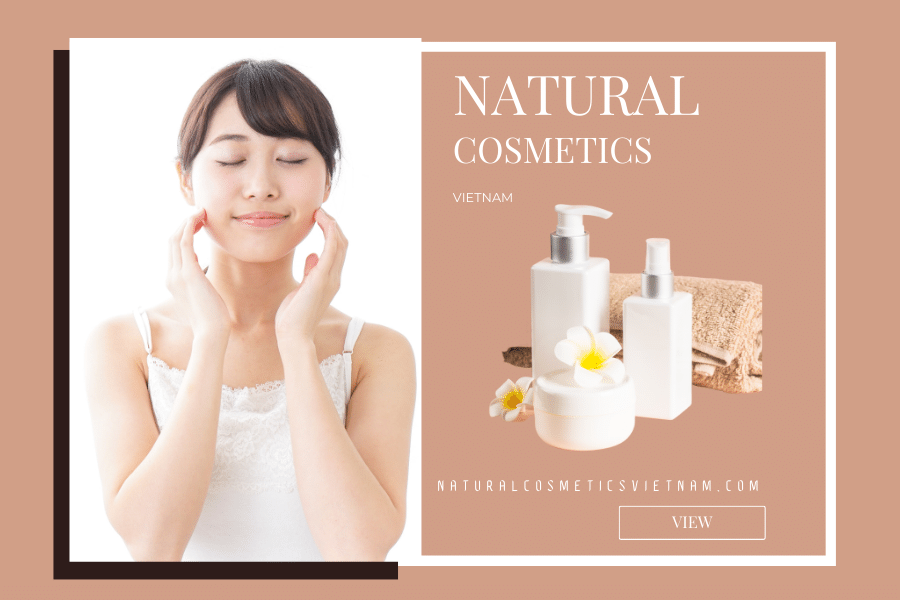
The Growing Trend of Herbal Extracts in Cosmetics
Herbal extracts have been used for centuries in various cultures for their medicinal properties. In recent years, these natural ingredients have gained popularity in the cosmetic industry due to their numerous skin benefits. Let’s explore some of the remarkable advantages of incorporating herbal extracts into cosmetics.
Firstly, herbal extracts are rich in antioxidants, which help protect the skin from free radicals and environmental damage. Free radicals can accelerate the aging process and cause skin conditions such as wrinkles, fine lines, and age spots. By including herbal extracts with high antioxidant content, such as green tea or grape seed extracts, cosmetics can effectively combat these signs of aging and promote a youthful appearance.
Secondly, many herbal extracts possess anti-inflammatory properties, making them excellent ingredients for soothing and calming the skin. Conditions like acne, rosacea, and eczema often involve inflammation, redness, and irritation. Herbal extracts like chamomile, aloe vera, and calendula have anti-inflammatory effects that can help reduce these symptoms, promoting healthier and more balanced skin.
Furthermore, herbal extracts are known for their moisturizing abilities. Ingredients like lavender, rosehip, and jojoba oil have emollient properties, which help lock in moisture and prevent water loss from the skin. This hydration boost can improve skin texture, restore elasticity, and alleviate dryness, leaving the skin supple and radiant.
Another significant advantage of herbal extracts in cosmetics is their potential to brighten and even out the skin tone. Many extracts, such as licorice root and bearberry, contain natural compounds that inhibit melanin production, the pigment responsible for dark spots and hyperpigmentation. By incorporating these extracts into skincare products, cosmetics can help reduce the appearance of dark spots and promote a more luminous complexion.
In addition to the above benefits, herbal extracts often have soothing and healing properties. Ingredients like witch hazel, tea tree oil, and chamomile can help calm irritated skin, treat blemishes, and promote the healing of minor wounds or cuts. These properties make herbal extracts valuable additions to cosmetics designed for sensitive or acne-prone skin.
In conclusion, the inclusion of herbal extracts in cosmetics brings a multitude of skin benefits. From antioxidant protection and anti-inflammatory effects to moisturizing properties and skin tone improvement, these natural ingredients offer a holistic approach to skincare. As consumers increasingly prioritize natural and sustainable options, the use of herbal extracts in cosmetics is likely to continue growing, providing individuals with effective and gentle solutions for their skincare needs.
Hair and Scalp Benefits of Herbal Extracts in Cosmetics
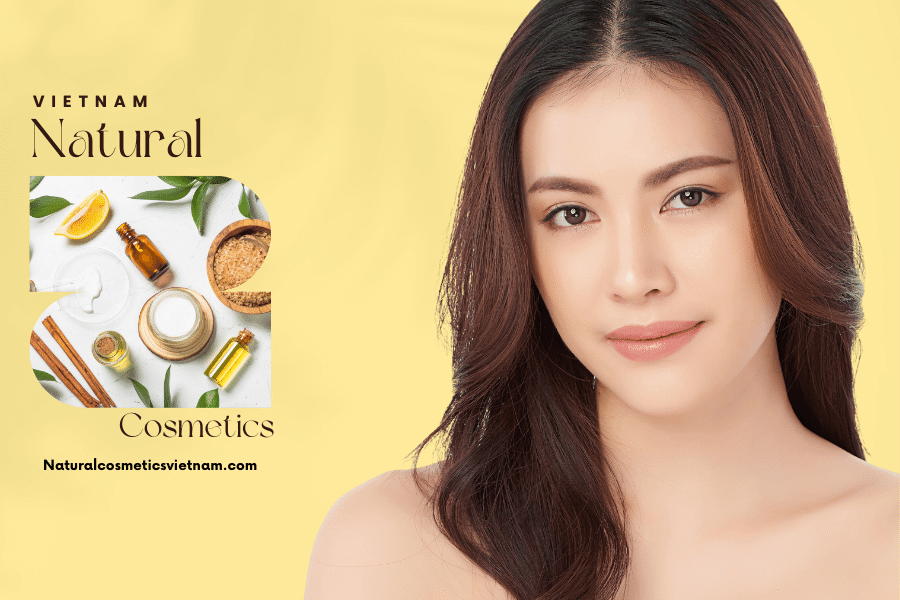
The Growing Trend of Herbal Extracts in Cosmetics
Herbal extracts have long been utilized for their therapeutic properties in various traditional hair care practices. In recent times, the cosmetic industry has recognized the significant benefits of incorporating herbal extracts into hair care products. Let’s delve into the hair and scalp advantages offered by these natural ingredients in cosmetics.
First and foremost, herbal extracts can nourish and strengthen the hair follicles. Extracts like aloe vera, rosemary, and hibiscus are known for their ability to stimulate hair growth and prevent hair loss. These extracts contain vitamins, minerals, and antioxidants that promote a healthy scalp environment, which is essential for robust hair growth and minimizing breakage.
Additionally, many herbal extracts possess antibacterial and antifungal properties, making them effective in combating scalp conditions such as dandruff and itching. Ingredients like tea tree oil, neem, and peppermint extract have natural antimicrobial properties that can help reduce scalp irritation and maintain a clean and balanced scalp.
Moreover, herbal extracts can enhance the overall condition and appearance of the hair. Extracts such as chamomile, lavender, and henna can add shine and luster to the hair, making it look healthier and more vibrant. These extracts also have conditioning properties that help nourish and moisturize the hair strands, reducing frizz and promoting manageability.
Furthermore, herbal extracts are often used to address specific hair concerns. For instance, extracts like nettle and saw palmetto have been used to regulate excess oil production in the scalp, making them beneficial for individuals with oily hair. On the other hand, extracts such as marshmallow root and amla can provide hydration and moisture to dry and brittle hair, improving its texture and elasticity.
In addition to their hair-focused benefits, herbal extracts can also contribute to scalp health. Ingredients like ginseng and horsetail extract can enhance blood circulation in the scalp, promoting a healthier environment for hair growth. This increased blood flow can deliver vital nutrients and oxygen to the hair follicles, aiding in their nourishment and revitalization.
In conclusion, the incorporation of herbal extracts in hair care cosmetics offers a wide array of benefits for both the hair and scalp. From promoting hair growth and combating scalp conditions to improving hair condition and addressing specific concerns, these natural ingredients provide a holistic approach to hair care. As consumers seek more natural and sustainable options, the use of herbal extracts in hair care products is likely to continue flourishing, offering individuals effective and gentle solutions for their hair care needs.
Common Applications of Herbal Extracts in Cosmetics
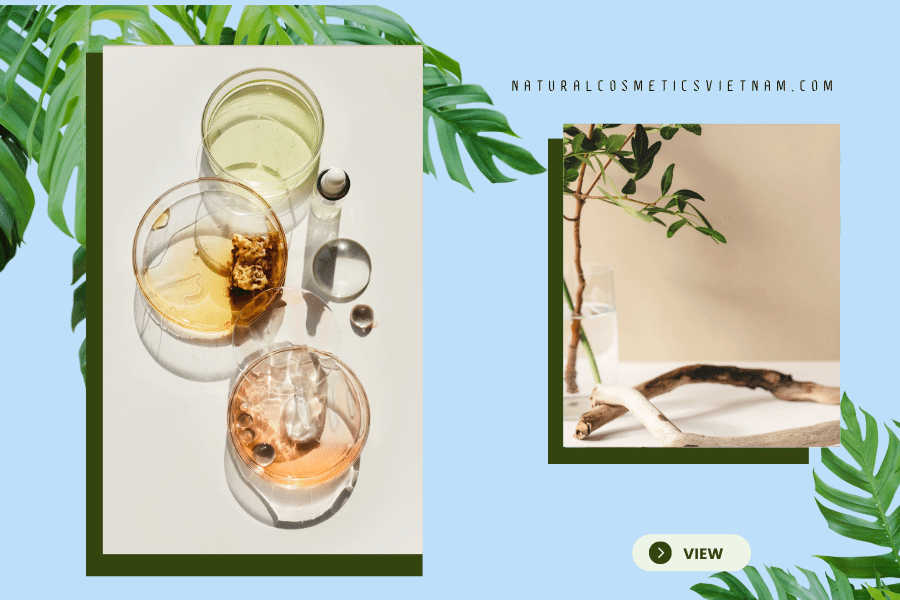
The Growing Trend of Herbal Extracts in Cosmetics
Herbal extracts have found wide-ranging applications in the field of cosmetics due to their beneficial properties and natural origins. Let’s explore some of the common uses and applications of herbal extracts in cosmetic products.
Facial Cleansers and Toners
Facial cleansers and toners are essential steps in a skincare routine, and herbal extracts play a significant role in these products. Here are some of the key benefits and common herbal extracts used in facial cleansers and toners:
- Soothing and Calming Properties: Herbal extracts like chamomile, aloe vera, and calendula are known for their soothing and calming properties. They can help reduce skin irritation, redness, and inflammation, making them ideal ingredients for sensitive or reactive skin types.
- Astringent and Pore-Minimizing Effects: Certain herbal extracts, such as witch hazel and rose water, have astringent properties. They help tighten the skin and minimize the appearance of pores, giving a smoother and more refined complexion.
- Antioxidant Protection: Herbal extracts like green tea, grape seed extract, and licorice root are rich in antioxidants. These antioxidants help neutralize free radicals, which can damage the skin and contribute to premature aging. By incorporating these extracts into cleansers and toners, they can provide an added layer of protection against environmental stressors.
- Hydration and Moisture Balance: Some herbal extracts, such as rose water and cucumber extract, have hydrating properties. They can help replenish and retain moisture in the skin, preventing dryness and maintaining a balanced hydration level.
- Clarifying and Cleansing: Herbal extracts like tea tree oil and lemon extract possess antibacterial and clarifying properties. They can help remove excess oil, dirt, and impurities from the skin, making them beneficial for individuals with oily or acne-prone skin.
- Brightening and Evening Skin Tone: Certain herbal extracts, including licorice root and bearberry extract, have skin-brightening effects. They can help fade dark spots, hyperpigmentation, and uneven skin tone, resulting in a more luminous complexion.
- Refreshing and Revitalizing: Many herbal extracts, such as mint, eucalyptus, and citrus extracts, provide a refreshing and revitalizing sensation to the skin. They can invigorate and awaken the complexion, leaving it feeling refreshed and rejuvenated.
Moisturizers and Creams
Moisturizers and creams are vital components of a skincare routine, and herbal extracts play a significant role in enhancing their effectiveness. Here are some of the key benefits and common herbal extracts used in moisturizers and creams:
- Hydration and Moisture Retention: Herbal extracts like aloe vera, hyaluronic acid, and cucumber extract are renowned for their hydrating properties. They can replenish moisture in the skin and help lock it in, resulting in improved hydration levels and a plump, supple complexion.
- Nourishment and Skin Conditioning: Many herbal extracts, such as rosehip oil, shea butter, and jojoba oil, provide essential nutrients and fatty acids that nourish the skin. These extracts help improve skin texture, enhance elasticity, and promote a healthy skin barrier.
- Antioxidant Protection: Herbal extracts with high antioxidant content, such as green tea, pomegranate, and vitamin E, offer protection against free radicals. Free radicals can cause oxidative stress, leading to premature aging and damage to the skin. Incorporating these extracts in moisturizers and creams helps shield the skin and maintain a youthful appearance.
- Calming and Soothing Effects: Certain herbal extracts like chamomile, lavender, and calendula have calming and soothing properties. They can help reduce skin redness, inflammation, and irritation, making them suitable for sensitive or reactive skin types.
- Anti-Aging and Wrinkle Reduction: Herbal extracts such as rosemary, ginseng, and sea buckthorn are known for their anti-aging properties. These extracts can help stimulate collagen production, improve skin elasticity, and minimize the appearance of wrinkles and fine lines.
- Brightening and Even Skin Tone: Some herbal extracts, including licorice root, bearberry, and vitamin C, have skin-brightening effects. They can help fade dark spots, hyperpigmentation, and uneven skin tone, resulting in a more radiant and even complexion.
- Healing and Skin Repair: Herbal extracts like aloe vera, calendula, and tea tree oil possess healing properties that can aid in skin repair. They can help soothe minor wounds, reduce inflammation, and promote faster healing of damaged or compromised skin.
Anti-Aging Products
Anti-aging products are designed to target and minimize the signs of aging, such as wrinkles, fine lines, and loss of elasticity. Herbal extracts play a significant role in formulating effective anti-aging products. Here are some key benefits and common herbal extracts used in anti-aging skincare:
- Antioxidant Protection: Herbal extracts rich in antioxidants, such as green tea, grape seed extract, and vitamin C, help protect the skin from free radicals. Free radicals can damage collagen and elastin fibers, leading to premature aging. Antioxidant-rich extracts neutralize free radicals, reducing the appearance of fine lines and wrinkles and promoting a more youthful complexion.
- Collagen Boosting: Herbal extracts like rosehip oil, ginseng, and sea buckthorn are known for their ability to stimulate collagen production. Collagen is a protein that provides structure and elasticity to the skin. By promoting collagen synthesis, these extracts help improve skin firmness and reduce the visible signs of aging.
- Moisture Retention and Hydration: Many herbal extracts, including hyaluronic acid, aloe vera, and cucumber extract, have excellent moisturizing properties. They can attract and retain moisture in the skin, reducing the appearance of wrinkles and creating a plumping effect. Hydrated skin appears smoother and more youthful.
- Skin Regeneration and Renewal: Certain herbal extracts, such as rosemary, calendula, and retinol from natural sources like rosehip seed oil, promote skin regeneration and renewal. They help accelerate cell turnover, revealing fresher, younger-looking skin and reducing the appearance of fine lines and age spots.
- Soothing and Anti-Inflammatory Effects: Herbal extracts like chamomile, lavender, and calendula have calming and anti-inflammatory properties. They can help soothe irritated skin, reduce redness, and minimize the appearance of inflammation-induced aging signs.
- Brightening and Evening Skin Tone: Some herbal extracts, including licorice root, bearberry extract, and vitamin C, have skin-brightening effects. They help fade dark spots, hyperpigmentation, and age spots, resulting in a more even and radiant complexion.
- Protection Against Environmental Damage: Certain herbal extracts, such as ginkgo biloba, turmeric, and green tea, offer protection against environmental stressors. They can help combat the effects of UV radiation, pollution, and other environmental aggressors that contribute to premature aging.
Hair Care Products
Hair care products often harness the power of herbal extracts to promote healthy hair growth, improve hair texture, and address specific hair concerns. Here are some key benefits and common herbal extracts used in hair care products:
- Scalp Health and Stimulation: Herbal extracts like rosemary, peppermint, and ginseng are known for their ability to improve scalp health and stimulate hair follicles. These extracts increase blood circulation to the scalp, promoting a healthier environment for hair growth and addressing issues like dryness, itchiness, and dandruff.
- Hair Growth and Thickness: Certain herbal extracts, such as aloe vera, hibiscus, and saw palmetto, are believed to encourage hair growth and enhance hair thickness. These extracts provide nourishment to the scalp and hair follicles, promoting strong and healthy hair growth.
- Moisture and Hydration: Herbal extracts like coconut oil, argan oil, and shea butter have moisturizing properties that help nourish and hydrate the hair strands. They can improve hair texture, reduce frizz, and restore moisture balance, especially for dry and damaged hair.
- Strengthening and Repairing: Herbal extracts such as horsetail, bamboo extract, and nettle are rich in minerals and vitamins that contribute to hair strength and repair. They help fortify the hair strands, minimize breakage, and improve overall hair health.
- Anti-Dandruff and Scalp Cleansing: Certain herbal extracts like tea tree oil, neem, and witch hazel possess antibacterial and antifungal properties that help combat dandruff and scalp issues. They cleanse the scalp, soothe irritation, and maintain a healthy scalp environment.
- Color Protection: Herbal extracts like chamomile and henna are used to enhance and protect hair color. Chamomile can naturally lighten hair, while henna can provide conditioning and color-enhancing effects, helping maintain vibrant and healthy-looking hair.
- Shine and Luster: Many herbal extracts, including rosehip oil, lavender oil, and citrus extracts, provide shine and luster to the hair. They coat the hair strands, giving them a glossy appearance and enhancing their overall beauty.
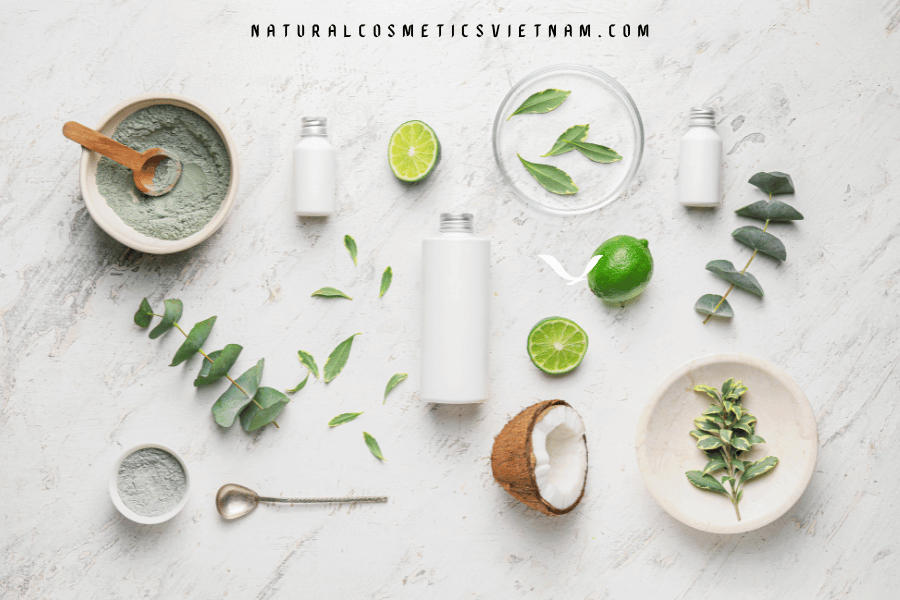
The Growing Trend of Herbal Extracts in Cosmetics
Natural Colorants
Natural colorants are derived from various plant-based sources and are used to add color to a wide range of cosmetic products, including makeup, hair dyes, and bath products. Here are some common natural colorants and their sources:
- Henna (Lawsonia inermis): Henna is a popular natural colorant derived from the leaves of the henna plant. It is commonly used to create reddish-brown shades in hair dyes and temporary body art products.
- Beetroot Powder: Beetroot powder is obtained from the root of the beet plant. It imparts a vibrant reddish-purple hue and is used in lipsticks, blushes, and natural dyes.
- Turmeric (Curcuma longa): Turmeric is a bright yellow spice derived from the turmeric plant. It is used as a natural colorant in skincare products and can provide a warm golden-yellow hue.
- Indigo (Indigofera tinctoria): Indigo is a plant-based colorant obtained from the indigo plant. It is commonly used in natural hair dyes to achieve shades of blue or dark brown.
- Annatto (Bixa orellana): Annatto is derived from the seeds of the achiote tree and provides a range of yellow to orange hues. It is used in cosmetics such as lipsticks, eyeshadows, and soaps.
- Spirulina (Arthrospira spp.): Spirulina is a blue-green algae that can be used as a natural colorant in cosmetics, giving a vibrant green or blue shade. It is often used in bath products and skincare formulations.
- Alkanet Root (Alkanna tinctoria): Alkanet root is a deep red-purple colorant derived from the roots of the alkanet plant. It is used to provide natural color to lip balms, soaps, and other cosmetic products.
- Red Cabbage Extract: Red cabbage extract contains natural pigments that can be used to create shades of pink or purple in cosmetic products. It is used in natural dyes and lip products.
Sunscreens and SPF Products
Sunscreens and SPF (Sun Protection Factor) products are essential for protecting the skin from harmful ultraviolet (UV) radiation. While many sunscreens contain synthetic UV filters, there are also natural alternatives, including herbal extracts, that offer sun protection. Here are some common herbal extracts used in sunscreens and SPF products:
- Green Tea Extract: Green tea extract is rich in antioxidants called polyphenols, particularly catechins. These antioxidants help neutralize free radicals and provide protection against UV-induced damage. Green tea extract is often used in sunscreens for its potential to reduce the risk of sunburn and protect against skin aging caused by UV exposure.
- Red Raspberry Seed Oil: Red raspberry seed oil is rich in antioxidants, including tocopherols and carotenoids, which offer natural sun protection. It has been found to have a moderate SPF value and can provide additional benefits such as hydration and anti-inflammatory properties.
- Aloe Vera Extract: Aloe vera extract is known for its soothing and moisturizing properties. While it doesn’t provide significant UV protection on its own, it is often included in sunscreens and SPF products for its ability to soothe sunburned skin and reduce inflammation caused by UV exposure.
- Carrot Seed Oil: Carrot seed oil contains carotenoids, including beta-carotene, which have natural UV protection properties. It can help enhance the skin’s defense against UV rays and support skin health.
- Coconut Oil: While coconut oil has a relatively low SPF value, it can offer some natural sun protection due to its composition of medium-chain fatty acids and antioxidants. It is often used in combination with other ingredients in natural sunscreens to provide additional nourishment and hydration to the skin.
Acne Treatment Products
Acne treatment products of herbal extract have gained significant popularity in recent years due to their natural and effective approach to combating acne. These products utilize the power of various plant-based ingredients known for their beneficial properties in treating skin issues.
Herbal extracts such as tea tree oil, aloe vera, green tea, and chamomile are commonly found in acne treatment products. Tea tree oil, renowned for its antiseptic and antimicrobial properties, helps kill acne-causing bacteria and reduce inflammation. Aloe vera soothes and moisturizes the skin, while also possessing antibacterial properties that aid in healing acne lesions.
Green tea extract, rich in antioxidants, helps reduce inflammation and sebum production, preventing clogged pores. Additionally, it contains catechins that possess antimicrobial properties, further aiding in the fight against acne. Chamomile extract, known for its calming and anti-inflammatory effects, helps soothe irritated skin and reduce redness associated with acne breakouts.
These herbal extracts work synergistically to target multiple factors contributing to acne development. They help control excess oil production, unclog pores, reduce inflammation, and fight bacterial growth, all without the harsh side effects often associated with synthetic ingredients found in conventional acne treatments.
Moreover, acne treatment products of herbal extract are typically gentle on the skin, making them suitable for individuals with sensitive or easily irritated skin. They offer a natural alternative to traditional acne treatments, providing a more holistic and sustainable approach to achieving clear and healthy skin.
Natural Fragrances
Natural fragrances have become increasingly popular in recent years as people seek healthier and more sustainable alternatives to synthetic perfumes. These fragrances are created using natural ingredients derived from plants, flowers, fruits, and other botanical sources.
One of the key advantages of natural fragrances is their avoidance of synthetic chemicals and potentially harmful ingredients found in conventional perfumes. Synthetic fragrances often contain phthalates, parabens, and other synthetic compounds that can cause allergic reactions or skin irritations. In contrast, natural fragrances utilize essential oils and plant extracts, which are generally considered safer and more environmentally friendly.
Essential oils, extracted from aromatic plants through methods such as steam distillation or cold-pressing, form the basis of many natural fragrances. These oils possess unique scents that range from floral and fruity to woody and herbal. Some popular essential oils used in natural fragrances include lavender, rose, jasmine, bergamot, sandalwood, and vanilla.
In addition to essential oils, natural fragrances can also incorporate other natural ingredients such as resins, spices, and fruit extracts. For example, amber, benzoin, and frankincense resins can add depth and warmth to a fragrance, while spices like cinnamon, cardamom, or nutmeg provide a touch of complexity. Fruity extracts such as citrus oils or berry essences offer bright and refreshing notes.
Natural fragrances not only offer a wide variety of scents but also provide a more authentic and nuanced olfactory experience. Each natural ingredient contributes its unique aroma, resulting in fragrances that are often more complex and subtly changing over time. Furthermore, natural fragrances tend to have a softer and more delicate scent profile compared to the sometimes overpowering nature of synthetic perfumes.
Another advantage of natural fragrances is their eco-friendly nature. By relying on renewable botanical resources, they reduce the reliance on petroleum-derived ingredients and contribute to a more sustainable fragrance industry. Additionally, many natural fragrance brands prioritize ethical sourcing practices and support fair trade initiatives, ensuring the well-being of local communities and preserving biodiversity.
It’s important to note that natural fragrances may have a different longevity and sillage compared to synthetic fragrances. The volatile compounds in natural ingredients tend to evaporate more quickly, resulting in a shorter duration of the scent on the skin. However, many people appreciate the subtlety and personal connection that comes with natural fragrances.
Notes when using herbal extract in cosmetics
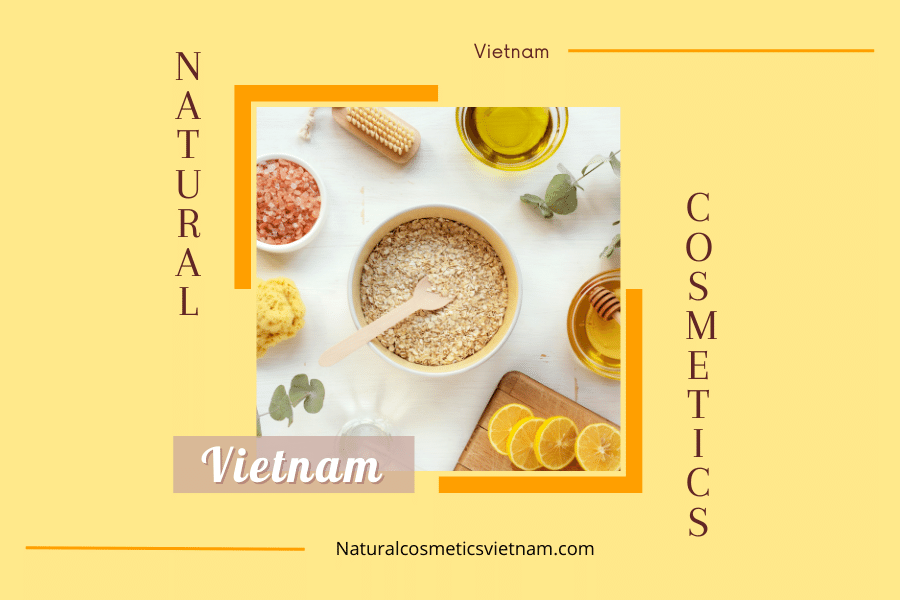
The Growing Trend of Herbal Extracts in Cosmetics
When using herbal extracts in cosmetics, it’s important to keep several factors in mind to ensure safe and effective use. Here are some essential notes to consider:
- Quality and Purity: Choose herbal extracts from reputable sources that provide high-quality, pure ingredients. Look for extracts that are obtained through reliable extraction methods and undergo appropriate testing for quality assurance.
- Allergies and Sensitivities: Some individuals may be allergic or sensitive to specific herbal extracts. Perform a patch test before using a new product or ingredient on a larger area of the skin. If any adverse reactions occur, discontinue use and consult a healthcare professional.
- Concentration and Dilution: Follow the recommended guidelines for the appropriate concentration and dilution of herbal extracts in cosmetic formulations. Using excessive amounts or undiluted extracts may lead to skin irritation or other adverse effects.
- Compatibility and Stability: Consider the compatibility and stability of herbal extracts with other ingredients in the formulation. Some extracts may have specific pH requirements or may not be compatible with certain ingredients, which can affect the stability and effectiveness of the product.
- Shelf Life and Storage: Herbal extracts can have varying shelf lives, and their potency may decrease over time. Follow the manufacturer’s recommendations for storage conditions (e.g., temperature, light exposure) and use products within their recommended expiration dates.
- Regulatory Compliance: Ensure that the herbal extracts used in cosmetics comply with relevant regulations and guidelines in your region or country. Be aware of any restrictions or limitations on the use of specific herbal extracts.
- Patch Testing on Different Skin Types: Keep in mind that the effects of herbal extracts can vary across different skin types. What works well for one person may not have the same results for another. Consider individual skin characteristics, such as sensitivity, oiliness, or dryness, when using herbal extracts in cosmetics.
- Consultation with Experts: If you have specific skin concerns, are pregnant or breastfeeding, or have underlying health conditions, it’s advisable to consult a dermatologist or healthcare professional before using cosmetics with herbal extracts.
By following these notes and considering individual factors, you can maximize the benefits of herbal extracts in cosmetics while ensuring the safety and efficacy of your skincare routine.
As consumers become more conscious of the ingredients in their beauty products, the demand for herbal extract-based cosmetics continues to grow. The trend towards clean and natural beauty aligns with the desire for sustainable and eco-friendly options. Consumers appreciate the efficacy of herbal extracts and their ability to provide natural solutions for various skin and hair concerns. With the market’s positive response, there are ample opportunities for the development and expansion of herbal extract-based cosmetics in the future.
Herbal extracts have become a driving force in the cosmetics industry, offering natural and effective solutions for skincare and haircare. Their diverse range of benefits, including moisturizing, anti-aging, soothing, and protective properties, makes them highly sought after by consumers. From aloe vera to chamomile and green tea, herbal extracts have demonstrated their ability to nurture and enhance the health of the skin, hair, and scalp. As the demand for clean and botanical-based cosmetics continues to rise, herbal extract-based products are expected to play an increasingly prominent role in the beauty industry, catering to the needs of conscious consumers seeking natural and effective solutions.

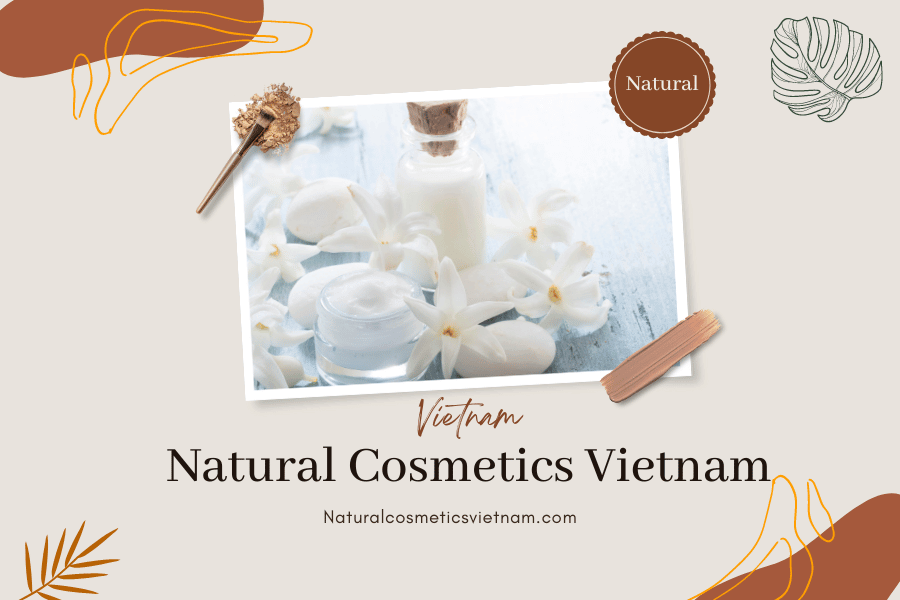









Leave a reply